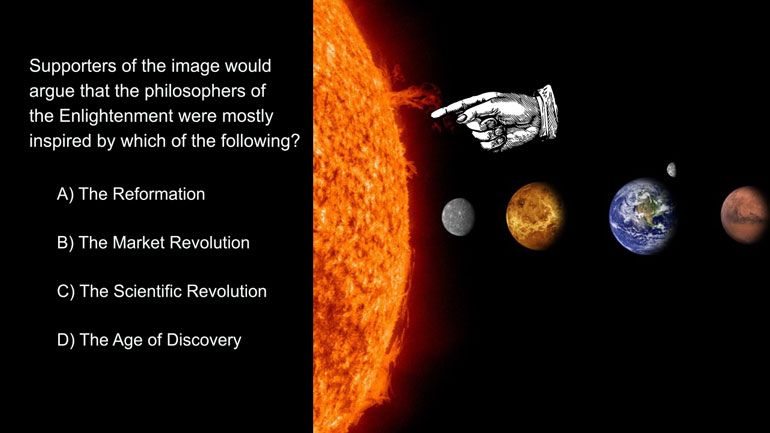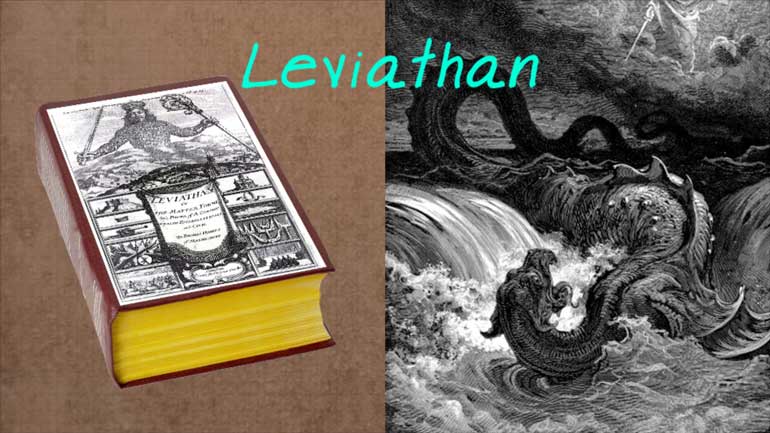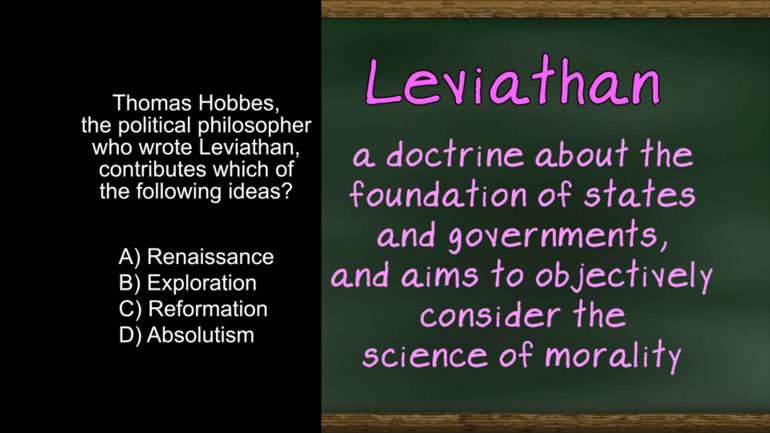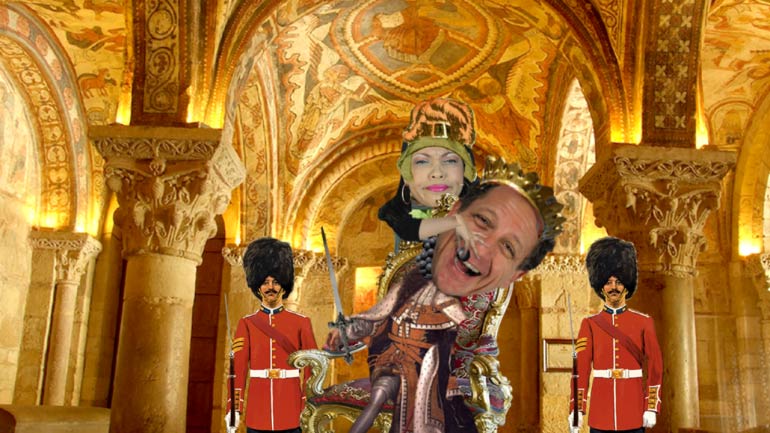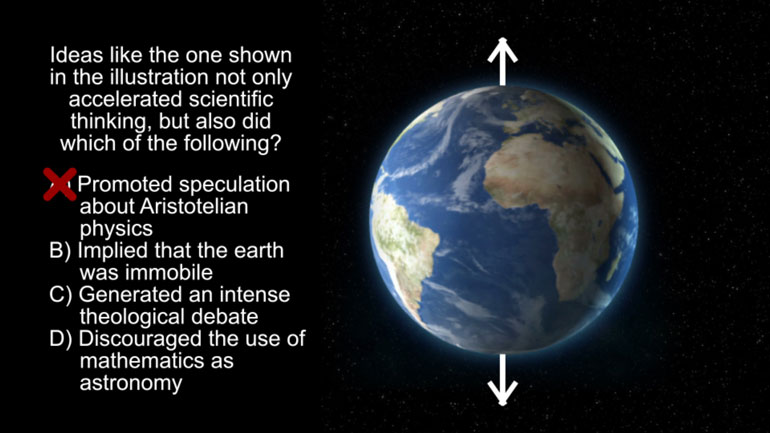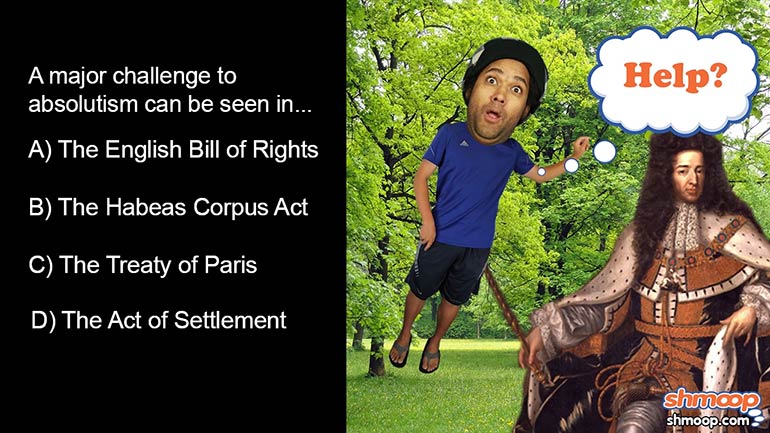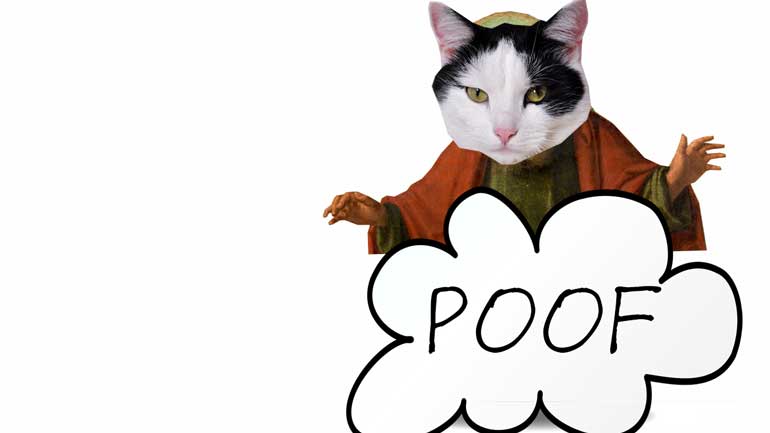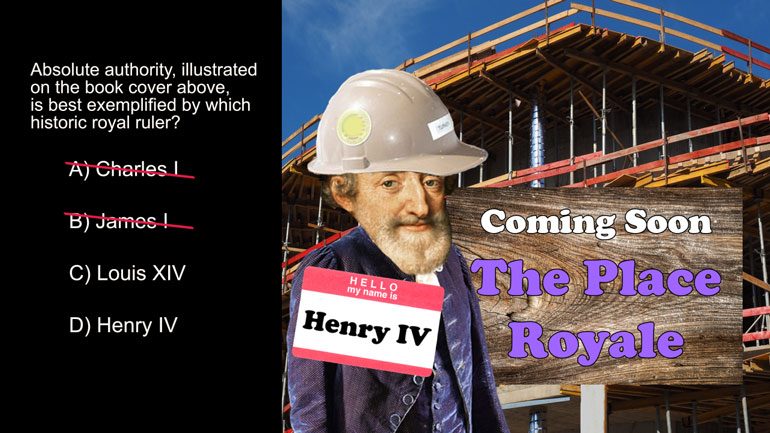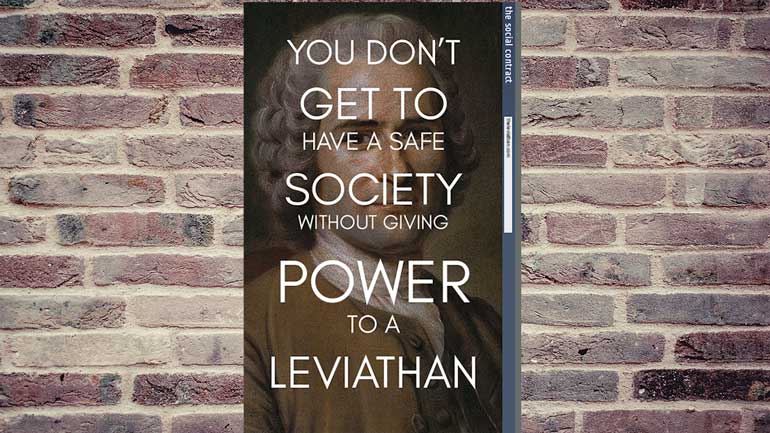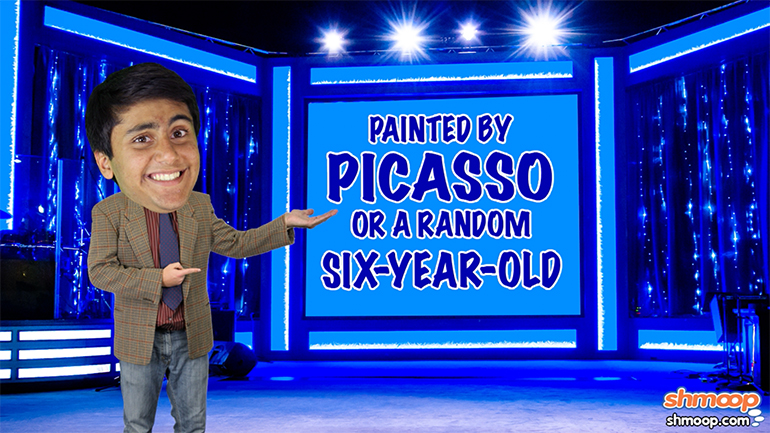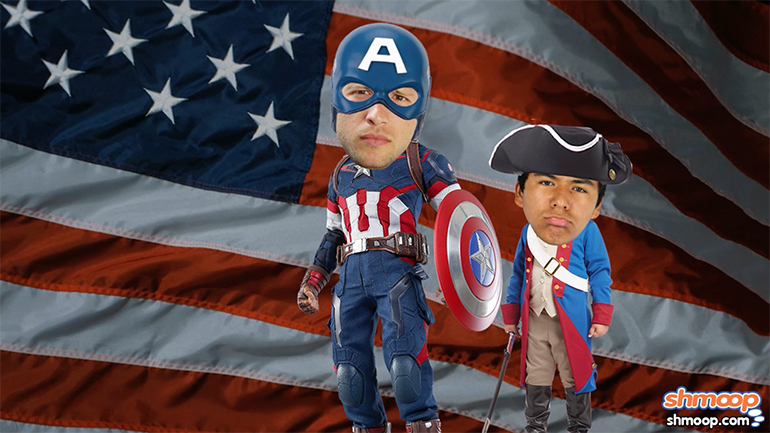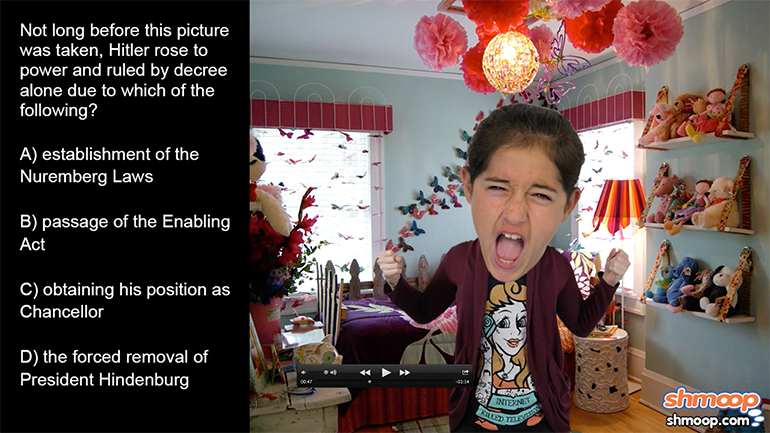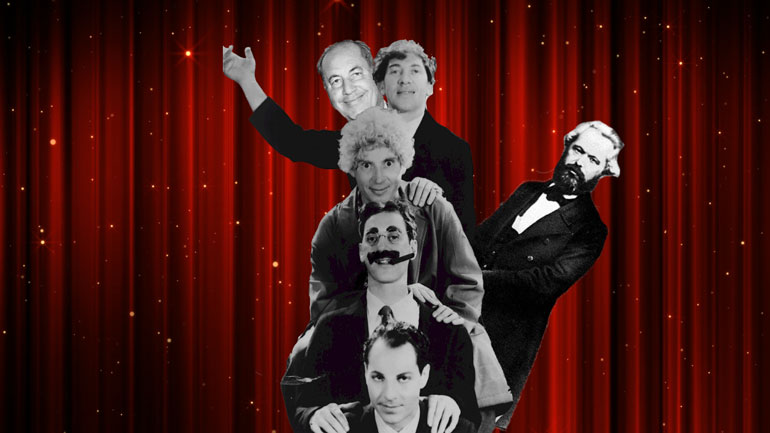ShmoopTube
Where Monty Python meets your 10th grade teacher.
Search Thousands of Shmoop Videos
Period 2: 1648-1815 Videos 9 videos
AP European History 2.3 Period 2: 1648-1815. Supporters of this image would argue that philosophers of the Enlightenment were mostly inspired by wh...
AP European History 1.2 Period 2: 1648-1815. Which best describes the state of nature as highlighted in Leviathan by Thomas Hobbes?
AP European History 1.1 Period 2: 1648-1815. Thomas Hobbes, the political philosopher who wrote Leviathan, contributes which of the following ideas?
AP European History 2.5 Period 2: 1648-1815 25 Views
Share It!
Description:
AP European History 2.5 Period 2: 1648-1815. As a result of applying scientific inquiry to society, which of the following best reflects the collaborative nature of gathering data during the Enlightenment?
Transcript
- 00:04
And here's your shmoop du jour brought to you by the social
- 00:07
contract it's a thrilling sequel to the social network where we see Mark
- 00:11
Zuckerberg sorting out the legal logistics of his new business all right [Mark Zuckerberg sat on a sofa]
- 00:15
take a look at the image.... All right todays question as a
- 00:22
result of applying scientific inquiry to society which of the following best
Full Transcript
- 00:27
reflects the collaborative nature of gathering data during the Enlightenment
- 00:31
and here are your potential answers... in case you're one of the few people out there
- 00:37
who hasn't read all four of these books you can go ahead and pause the video [Man sat at a desk with four books]
- 00:41
right now and come back once you've finished..Don't worry we'll be here ....and
- 00:50
done good, good yes still alive is it the year 3000? Have the robots taken over yet [Robots taking over the planet]
- 00:57
no well it's disappointing so which of those texts that you just read best
- 01:01
reflects the collaborative nature of gathering data during the Enlightenment
- 01:04
is it B Rousseau's the social contract well to put it bluntly Rousseau was a
- 01:10
bit of a paranoid loner and hey there's nothing wrong with that not all of us [Rousseau hiding under blankets]
- 01:13
can be or want to be life of the party and it's not exactly easy to be the
- 01:17
center of attention when you're exiled by the Parliament of Paris for writing
- 01:21
things that offended both the church and the monarchy double whammy that
- 01:25
eliminates B..What about C - voltaire's candide well that book is more
- 01:30
contemplative than collaborative in Candide Voltaire attempts to question [Candide in a newspaper]
- 01:34
and explain how God can be good and allow evil to exist in the world..A
- 01:39
rather interesting discussion and the perfect sort of thing to bring up if [Guys eating while discussing Voltaire's candide]
- 01:42
you're looking to ruin a Thanksgiving dinner but not our answer.. Montesquieu's
- 01:47
the spirit of laws was also an individual effort it used principles of
- 01:51
scientific inquiry to examine the social and political foundation of states
- 01:55
sciency sure, collaborative no. Our answer heck no that means that the text
- 02:02
that best reflects the collaborative nature of gathering data during the
- 02:05
Enlightenment is A; Diderot's encyclopédie which when you consider
- 02:09
that it had over 60 thousand articles isn't so hard to believe [A page from Diderot's book]
- 02:14
crowdsourced at the time it was the first major attempt to organize and classify
- 02:17
knowledge gathered from experts from all over the world this effort was more or
- 02:22
less you know the Wikipedia before Wikipedia yes there was a time before [Man stood beside enclyopedia books]
- 02:25
Wikipedia people hard to imagine we know say yeah do they have Wikipedia in the
- 02:30
year 3000 seriously is anything different [Boy stood by a road in the year 3000]
Related Videos
AP European History Period 1: 1450-1648 Drill 2, Problem 1. As a result of the meeting in the image, which of the following occurred?
AP European History Period 3: 1815-1914 Drill 2, Period 1, Les Demoiselles d'Avignon represented the beginning of which of the following art m...
AP European History Period 3: 1815-1914 Drill 2, Problem 4. Paintings like the one depicted above were a direct reflection of what?
AP European History 1.2 Period 4: 1914-Present Not long before this picture was taken, Hitler rose to power and ruled by decree alone due to which...
AP European History 1.4 Period 3: 1815-1914. As evidenced through the passage above, Karl Marx was a passionate leader and is considered the father...
